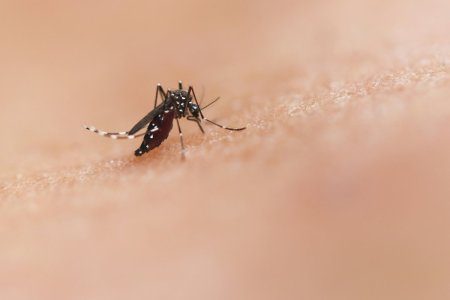Shocking Truth Revealed: How and Where Listeria is Invading Your Food!
By
Aubrey Razon
- Replies 0
The specter of listeria looms large over the American food supply, casting a shadow of concern for consumers nationwide. This year has seen a troubling surge in listeria outbreaks, leading to hundreds of hospitalizations and a number of tragic fatalities.
The pathogen, known for its resilience and ability to thrive in refrigerated environments, has infiltrated a variety of foods, from the deli counter to the produce aisle.
Let's delve into the details of these outbreaks and explore the measures you can take to ensure your safety.
The most significant of these involved Boar’s Head deli meat, which resulted in 59 hospitalizations and 10 deaths across 19 states.
But Boar’s Head is far from alone in this struggle; companies like BrucePac, BrightFarms, and others have also grappled with listeria-related recalls.
Here's a closer look at some of the key outbreaks and their current status:
The recall was initiated after routine product testing by the Maryland State Department of Health detected Listeria monocytogenes in the mushroom packages.
The list goes on, with recalls from Planters Peanuts, TreeHouse Foods, and ANSWERS Pet Food, each with their own set of affected products and origins, but fortunately no confirmed illnesses.
Symptoms can range from fever and muscle aches to more severe issues like headache, stiff neck, confusion, loss of balance, convulsions, and gastrointestinal symptoms.
Pregnant individuals are at risk of miscarriage, stillbirth, premature delivery, or life-threatening infection of newborns.
If you or someone you know falls into a higher-risk category and experiences flu-like symptoms within two months after consuming potentially contaminated food, it's crucial to seek medical care and inform the healthcare provider about the food in question.
 Have you been affected by a food recall? Do you have additional tips for avoiding listeria or other foodborne illnesses? Share your stories and advice in the comments below.
Have you been affected by a food recall? Do you have additional tips for avoiding listeria or other foodborne illnesses? Share your stories and advice in the comments below.
The pathogen, known for its resilience and ability to thrive in refrigerated environments, has infiltrated a variety of foods, from the deli counter to the produce aisle.
Let's delve into the details of these outbreaks and explore the measures you can take to ensure your safety.
The Listeria Landscape: A Nationwide Concern
Listeria monocytogenes, the bacterium responsible for listeriosis, has been responsible for several major outbreaks and recalls across the United States since January.The most significant of these involved Boar’s Head deli meat, which resulted in 59 hospitalizations and 10 deaths across 19 states.
But Boar’s Head is far from alone in this struggle; companies like BrucePac, BrightFarms, and others have also grappled with listeria-related recalls.
Here's a closer look at some of the key outbreaks and their current status:
Boar’s Head
- Recall Date: July 19
- Affected Products: 7.2 million pounds of liverwurst and other ready-to-eat deli meats
- Hospitalizations/Deaths: 59 hospitalized, including 10 dead
- Origin: Jarratt, Virginia
- Current Status: Jarratt facility closed, liverwurst permanently discontinued, investigation ongoing.
BrucePac
- Recall Date: Oct. 9
- Affected Products: 11.8 million pounds of ready-to-eat meat and poultry products
- Hospitalizations/Deaths: No confirmed reports of illness
- Origin: Durant, Oklahoma
- Current Status: Ongoing, check FSIS.usda.gov for updates or subscribe to our daily newsletter for updates.
Enoki King Mushroom Farm
- Recall Date: Oct. 15
- Affected Products: 5.3 oz packages of Enoki mushrooms
- Hospitalizations/Deaths: No confirmed reports of infection
- Origin: Ventura, California
- Current Status: Ongoing.
The recall was initiated after routine product testing by the Maryland State Department of Health detected Listeria monocytogenes in the mushroom packages.
BrightFarms
- Recall Dates: Jan. 17 and Feb. 8
- Affected Products: Spinach sold in salad, spinach kits, and cheese in salad kits
- Hospitalizations/Deaths: No confirmed reports of illness
- Origin: Pompton Plains, New Jersey
- Current Status: Closed.
The list goes on, with recalls from Planters Peanuts, TreeHouse Foods, and ANSWERS Pet Food, each with their own set of affected products and origins, but fortunately no confirmed illnesses.
Understanding Listeriosis: Symptoms and Risks
Listeriosis is a serious infection that can be life-threatening, particularly for older adults, individuals with weakened immune systems, and pregnant people.Symptoms can range from fever and muscle aches to more severe issues like headache, stiff neck, confusion, loss of balance, convulsions, and gastrointestinal symptoms.
Pregnant individuals are at risk of miscarriage, stillbirth, premature delivery, or life-threatening infection of newborns.
If you or someone you know falls into a higher-risk category and experiences flu-like symptoms within two months after consuming potentially contaminated food, it's crucial to seek medical care and inform the healthcare provider about the food in question.
Prevention: Your Best Defense Against Listeria
Preventing listeriosis starts with good food safety practices. Here are some tips to help you minimize the risk:- Stay Informed: Keep up-to-date with the latest food recalls by checking resources like the FDA's recall list and the USDA's Food Safety and Inspection Service (FSIS) website or subscribe to our daily newsletter.
- Practice Good Hygiene: Wash your hands, utensils, and food surfaces often. Listeria can spread from one surface to another.
- Cook Meat Thoroughly: Use a food thermometer to ensure that meat is cooked to a safe internal temperature.
- Store Food Properly: Keep your refrigerator below 40°F and your freezer below 0°F. Promptly refrigerate leftovers.
- Be Cautious with Deli Products: If you're at higher risk, avoid eating hot dogs, luncheon meats, or deli meats unless they're heated to an internal temperature of 165°F.
Key Takeaways
- Listeria outbreaks have been reported across the US, with numerous products from various companies being recalled.
- The most significant outbreak was tied to Boar’s Head deli meat, which led to 59 hospitalisations and 10 deaths.
- Listeriosis symptoms can be severe, including fever, muscle aches, and neurological effects, and can be particularly dangerous for certain high-risk groups.
- Consumers are urged to check for updates on recalls and to seek medical attention if they experience flu-like symptoms after consuming potentially contaminated food.







